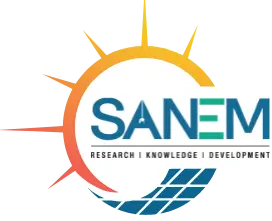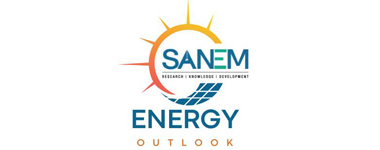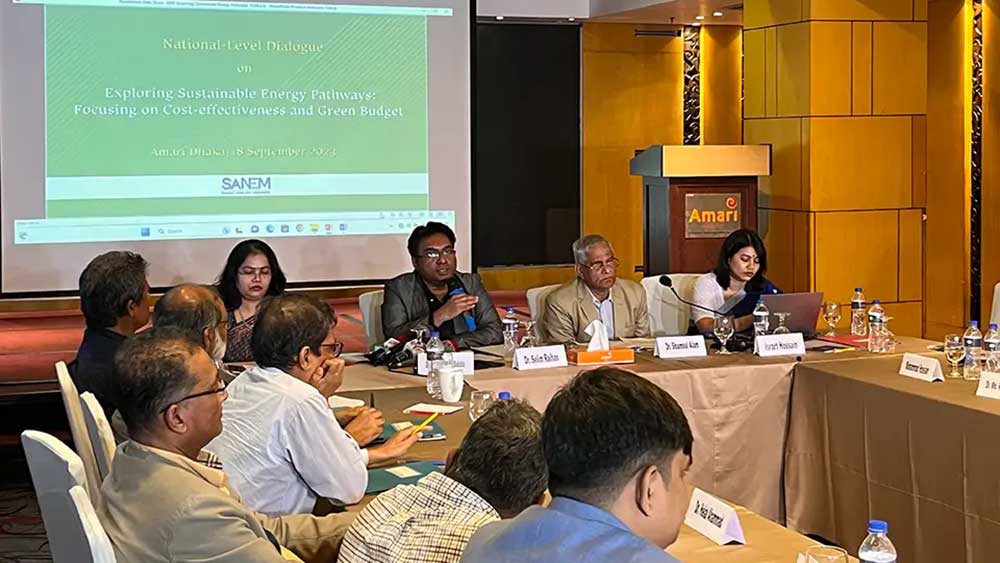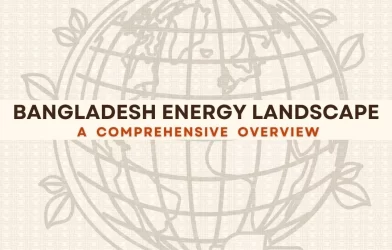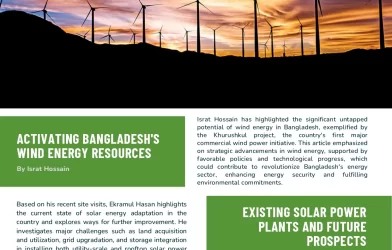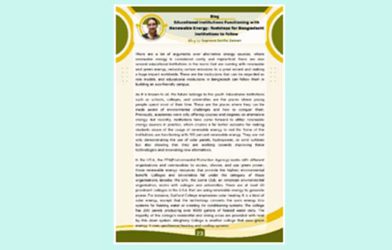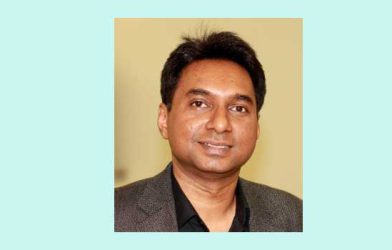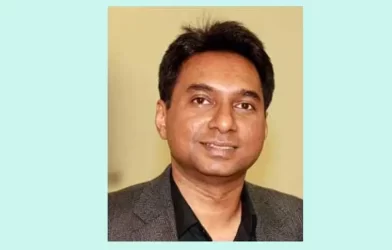Event Summary:
South Asian Network on Economic Modeling (SANEM) recently hosted a pivotal National-Level Dialogue on September 18, 2023, at 2 PM. The event, titled “Exploring Sustainable Energy Pathways: Focusing on Cost-effectiveness and Green Budget,” brought together experts and stakeholders to delve into crucial discussions surrounding sustainable energy, emphasising cost-effectiveness and environmentally conscious budgeting.
After giving the opening remarks, the event was skillfully moderated by Dr Selim Raihan, the Executive Director of SANEM and a Professor in the Department of Economics at the University of Dhaka. Ms Israt Hossain, Senior Research Associate at SANEM, started the program by presenting comprehensive insights into Bangladesh’s energy sector’s current state, plans, and prospects, specifically focusing on renewable energy. The dialogue featured esteemed guests, including Dr Shamsul Alam, the state minister for Planning of the People’s Republic of Bangladesh, who graced the occasion as the chief guest. The panel of speakers included Mohammad Hossain, Director General of Power Cell; A K M Fazlul Haque, Director (Deputy Secretary) of Sustainable and Renewable Energy Development Authority (SREDA); and representatives from the Ministry of Power, Energy and Mineral Resources. Noteworthy figures such as Md. Rafiqul Islam, Joint Secretary (Planning) of the Energy and Mineral Resources Division of the MoPEMR; Barrister Md. Khalilur Rahman Khan, Secretary (Deputy Secretary) of Bangladesh Energy Regulatory Commission; Engineer Md. Shah Alam, General Manager (LNG) of RupantaritaPrakritik Gas Company Limited (RPGCL) and Dr Ijaz Hossain, a professor and Dean of Engineering at Bangladesh University of Engineering (BUET); Dr M Shamsul Alam, Energy Advisor and Senior Vice President, CAB and Dean of Faculty of Engineering at Daffodil International University, added valuable perspectives. The distinguished lineup also featured academics such as Dr Saima Haque Bidisha, Research Director at SANEM; Shafiqul Alam, Energy Finance Analyst at the Institute for Energy Economics and Financial Analysis; Professor Dr Helal Ahmed of North South University; Md. Shahriar Ahmed Chowdhury, Founding Director of the Center for Energy Research; and Associate Professor Moshahida Sultana Ritu from the Department of Accounting and Information Systems at Dhaka University.
In her insightful presentation, Miss Israt Hossain, Senior Research Associate at SANEM, shed light on the intricate dynamics of the power and energy sector. Grounded in data from the Power Sector Master Plan 2016 and other governmental sources, Bangladesh aspires to achieve a formidable 30,000 MW peak demand power generation capacity by 2030 and an even more ambitious 60,000 MW by 2041.
As of 2022, a striking 98% of the total energy production in Bangladesh is derived from conventional sources such as natural gas, oil, diesel, and coal, while renewables contribute a mere 2%. This places Bangladesh at the bottom rung within the South Asian region, possessing the smallest share of renewable energy (excluding hydro) in its total installed capacity for electricity generation, standing at just 1.01%.
Despite achieving a commendable 100% electrification rate in the past year, the recent energy crisis has brought inherent structural vulnerabilities within the power and energy sector to the forefront. The operational losses of the Bangladesh Power Development Board (BPDB) are not solely attributed to the global energy crisis but also signify persistent weaknesses, reaching their zenith in the preceding year. This predicament has further intensified electricity import costs, escalating from 55% of total operating costs in FY20-21 to 68.5% in FY22-23. These figures underscore the urgent need for strategic interventions and comprehensive reforms within the energy landscape.
In response to the recent decline in domestic gas reserves, Bangladesh is strategically diversifying its energy landscape by placing emphasis on Liquified Natural Gas (LNG) as an alternative. The government’s proactive stance is evident through plans to construct three new LNG terminals and initiate the development of sixteen additional power plants. The intricacies of this comprehensive approach, including the opportunity cost, accounting cost, and environmental cost associated with the envisioned complete replacement of domestic gas by 2030, are meticulously presented.
In tandem with the challenges posed by dwindling gas reserves, Bangladesh is actively exploring renewable energy as a viable alternative, recognizing its substantial potential despite certain constraints. The scarcity of available land emerges as a significant hurdle for private investment in solar energy; however, innovative solutions propose dedicating 250 acres per 1000 acres for solar projects, concurrently addressing energy needs and preserving food security. Bangladesh, with an average of 4.5 hours of daylight per day, holds the potential to generate 2500 MW of electricity using solar power, offering a valuable resource to bridge daytime power shortages. Moreover, studies indicate the country could harness up to 17,000 MW of wind power by 2050, although the Bangladesh Power Development Board (BPDB) maintains a more conservative forecast of 500-600 MW.
In alignment with the comprehensive energy strategy, this year’s budget speech underscored the government’s commitment to elevating the contribution of renewable energy to 10 per cent of the total electricity supply by the year 2030. The budget presentation also highlighted notable advancements within the renewable energy sector, showcasing the installation of 6 million solar systems to provide electricity to households. Additionally, the establishment of eight solar parks nationwide and the ongoing initiative to replace diesel-powered pumps with solar-powered counterparts were acknowledged as steps toward reducing carbon emissions.
Addressing the prevailing energy crisis, Mohammad Hossain, the Director General of Power Cell, candidly acknowledged the dearth of information and identified the primary fuel crisis as the root cause. He emphasized the pivotal role of solar energy, attributing the renewable energy challenge to the singular feasibility of solar solutions. Noteworthy data shared by him indicated that, alongside the existing production of 1200 MW of renewable energy, an additional 2000 MW is currently under construction, with ambitious plans to elevate this capacity to 10,000 MW. Director General Hossain expressed optimism about the potential of diverse solar projects, encompassing floating solar initiatives, rooftop solar installations, land farming, and various other solar ventures.
Professor M. Shamsul Alam voiced concerns about the government’s approach to the power and energy sector, suggesting a sense of confusion. He traced the historical shift in Bangladesh’s focus from actively seeking gas fields for foreign currency earnings to a current lack of fervour in the wake of diminishing possibilities in this realm. Professor Alam underscored the dwindling role of the Planning Commission, once a key player in post-independence planning, emphasizing the need for its resurgence to address inconsistencies in recent plans. Drawing parallels with Amartya Sen’s perspective on food security, he argued that the availability of energy is insufficient without ensuring affordability, noting that despite the government’s capacity, challenges in procuring fuel hinder achieving true energy security. Professor Alam also stressed the importance of cultivating a market for renewable energy among the public, advocating for a comprehensive and inclusive strategy in shaping the nation’s energy future.
Energy finance analyst Shafiqul Alam offered a critical perspective, asserting that the nation’s focus has predominantly been on electricity security rather than comprehensive energy security. He attributed this approach to the assumption that the growth trajectory would effortlessly cover the costs of energy imports, a belief that has not materialized. Alam lamented a missed opportunity in the solar sector and stressed the urgency of initiating pilot projects promptly, emphasizing the adage that “nothing is more expensive than lost opportunities.” To address challenges related to solar crises tied to bank Letters of Credit (LCs), he recommended the reclassification of solar panels from luxury to essential products.
Meanwhile, Md. Rafiqul Islam, Joint Secretary (Planning) of the Energy and Mineral Resources Department, countered the notion that the government aims to reduce dependence on domestic gas. He clarified that efforts have been geared towards aligning gas imports with the government’s demand for growth, highlighting plans to drill an additional 46 wells in the upcoming financial year 2024-25. Islam also indicated positive progress in offshore exploration, assuring that tangible outcomes are on the horizon. He justified the decision to import Liquified Natural Gas (LNG) by noting that without it, the country would have faced heightened instances of load shedding.
Professor Dr Helal Ahmed underscored the imperative of prioritizing energy availability and affordability to ensure energy security. Emphasizing the need for foresight in policy implementation, he advocates for prioritizing low-cost sustainable energy sources to alleviate pressure on the government and empower the common people. Aligning with this vision, Mr Abul Kalam Azad highlights the importance of tailoring the energy sector’s planning to Bangladesh’s unique environmental and climatic conditions. He advocates for a village-centric approach in planning to optimize the success of renewable energy initiatives.
AKM Fazlul Haque, the Director (Deputy Secretary) at SREDA, highlights recent developments in the solar energy sector, citing a new circular issued to ease the net metering process. Acknowledging challenges related to manpower shortages, he commends such initiatives and welcomes the perspectives put forth by analysts. Meanwhile, Barrister Md. Khalilur Rahman Khan, Secretary (Deputy Secretary) of the Bangladesh Energy Regulatory Commission, informs about ongoing efforts to formulate a grid code. He expresses optimism about addressing the ongoing energy crisis by exploring new gas fields, thereby avoiding over-reliance on LNG imports and preserving foreign exchange reserves.
Professor Dr Ijaz Hossain addresses the current dynamics of energy costs, noting the relatively low price of LNG compared to potentially higher costs associated with solar projects, particularly due to batteries. He critiques the power sector’s planning, highlighting a decrease in demand post-2017 compared to policymakers’ projections. Dr. Hossain strongly opposes electricity generation from oil, urging a more optimal utilization of solar energy to meet daytime demands. Proposing the exploration of green hydrogen and ammonia as fuel options, he suggests strategic diversification. Shahriar Ahmed Chowdhury, Founding Director of the Center for Energy Research, questions the reliance on ammonia rather than hydrogen as the primary fuel and advocates for domestic production. He emphasizes achieving the target of generating 30,000 MW of solar power by 2041 through sustainable battery costs resulting from technological advancements and underscores the importance of collaborative master planning with the country’s citizens.
Engineer Md. Shah Alam, the General Manager (LNG) at Converted Natural Gas Company Limited, highlighted the underutilization of the optimal capacity in our terminals. Despite having the necessary infrastructure, the full potential remains unrealized. In conclusion, Professor Ijaz drew attention to the Energy Commission’s role, suggesting that if given the responsibility of formulation, a more commercially focused approach could be prioritized. Dr. Sayema Haque Bidisha, in her succinct address, underscored the critical need to ensure the availability of fuel at affordable prices, deeming it the most significant success factor. Salim Rayhan, in his remarks, drew a parallel between the energy crisis and financial challenges, emphasizing the necessity of robust leadership and collective efforts from all organizations to navigate the current crisis.
State Minister for Planning, Professor Dr. Shamsul Alam, commenced his speech by highlighting recent national achievements, asserting that the country is not in crisis but undergoing a transformative stage. According to him, a true crisis would manifest if economic growth were negative. Drawing inspiration from rain-prone Germany, he expressed optimism about the potential role of solar energy in Bangladesh with goodwill and cited ongoing investments in wind energy through wind mapping to ensure sustainability. Dr. Alam emphasized the crucial implementation of net metering policies to encourage household-level investments in solar panels across the country. Referring to the rehabilitation of jute mills, he conveyed the government’s resolute stance against malpractices, expressing confidence in overcoming technical limitations to make the energy sector more consumer-friendly.
Video Link: https://www.youtube.com/watch?v=EI5E6Acw3p8
News Links:
- The Business Standard: LNG-based power cost was Tk49.49 per kwh last year: Sanem
- The Daily Star: Use of Renewable Energy: Bangladesh at bottom in S Asia
- Prothom Alo: দেশেপ্রচুরকোটিপতি, রাজস্বেরমূলউৎসহওয়াউচিতআয়কর: পরিকল্পনাপ্রতিমন্ত্রী
- Channel 24: বিদ্যুৎ-জ্বালানিখাতেরঅযৌক্তিকব্যয়েচাপেপড়েছেঅর্থনীতি
- Ekattor TV ‘দেশেবিদ্যুতেরউৎপাদনসক্ষমতার৪০শতাংশইঅব্যবহৃতথাকছে’
- NTV News ‘বিদ্যুৎউৎপাদনসক্ষমতার৪০শতাংশইঅব্যবহৃতথাকছে
- Dhaka Tribune: প্রতিমন্ত্রী: রাজস্বেরজন্যবিত্তবানদেরদিকেনজরদেওয়াপ্রয়োজন
